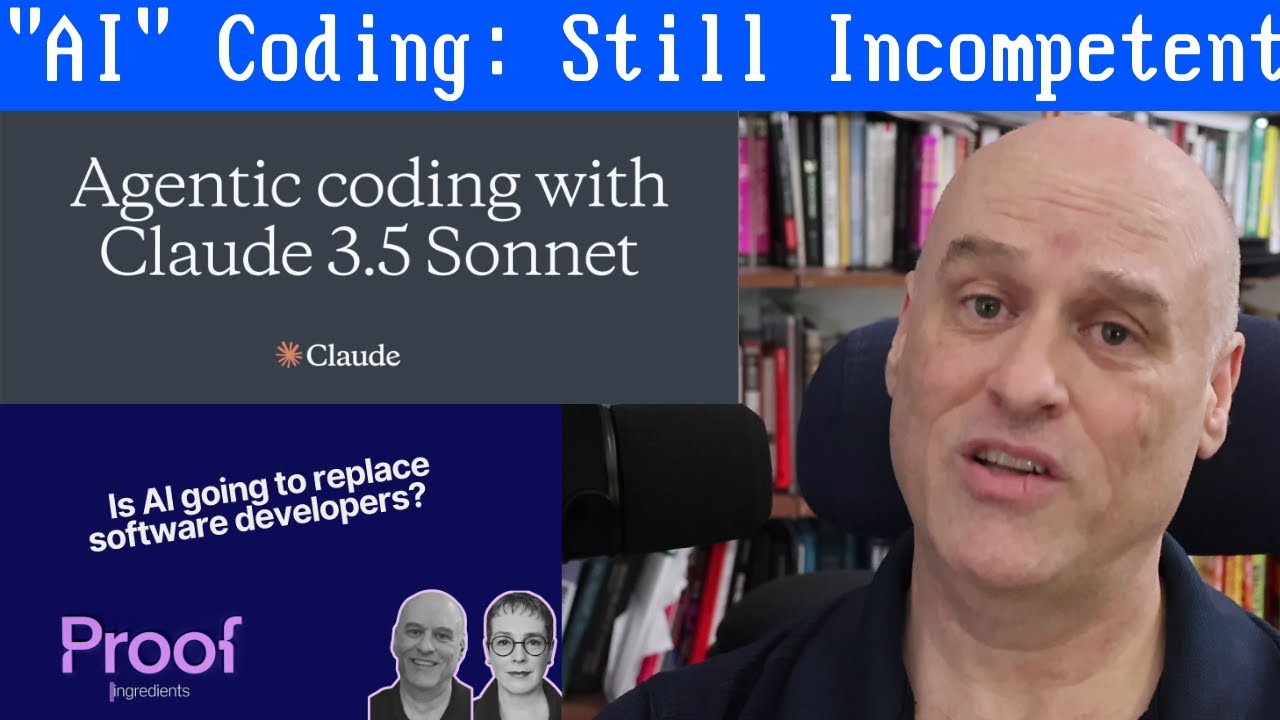In the video, Carl critiques Anthropic’s Claude 3.5 Sonnet model for its failure to correctly solve a simple coding problem, highlighting the subtlety of its mistakes and the tendency of AI companies to showcase easy tasks while downplaying limitations. He emphasizes the need for critical evaluation of AI capabilities, supported by organizations like Proof News, to counteract the hype and promote a more accurate understanding of AI’s performance in programming.
In the video, the host, Carl, continues his critique of AI coding capabilities, specifically focusing on a demo of Anthropic’s Claude 3.5 Sonnet model. He highlights that Claude was tasked with a simple coding problem—resizing and cropping images into circles—but failed to deliver a correct solution. Unlike previous AI demos that contained blatant factual errors, Claude’s mistakes were more subtle and glossed over in the presentation, illustrating a pattern of companies cherry-picking easy problems to showcase their AI’s capabilities while downplaying its limitations.
Carl meticulously analyzes the code provided in the demo, pointing out that Claude misdiagnosed the issues in the original code. He explains that the supposed bug on line 9 was irrelevant to the given input, and the fix suggested by Claude was unnecessary and misleading. Additionally, the test that Claude wrote to verify the code’s functionality was fundamentally flawed, as it did not accurately assess whether the cropping was performed correctly. Carl emphasizes that this kind of output is not what a competent programmer would produce, raising concerns about the quality of AI-generated code.
The discussion then shifts to the broader implications of AI’s shortcomings in coding. Carl mentions a new nonprofit called Proof News, which aims to counteract the hype surrounding AI by providing accurate evaluations of AI outputs. He appreciates their efforts to inject sanity into the conversation about AI capabilities, especially as many journalists amplify the hype without critical analysis. The collaboration with Proof News allows for a more nuanced understanding of AI performance across different models, revealing that the issues observed with Claude are not isolated but rather indicative of a general problem with AI coding.
Carl further explores the limitations of AI in programming, particularly when it comes to handling unique or complex problems. He illustrates this with an example involving prime number algorithms, where AI tends to default to simple solutions despite the existence of more efficient methods. This tendency raises concerns about the reliability of AI-generated code, especially in scenarios where nuanced judgment is required. Carl argues that if AI struggles with well-established problems, it is unlikely to excel in novel or intricate coding tasks.
In conclusion, Carl warns against the overhyped expectations of AI in programming, emphasizing that current models, including Claude 3.5, often produce subpar results that would not meet the standards of even novice programmers. He calls for responsible journalism and critical evaluation of AI capabilities, highlighting the importance of organizations like Proof News in promoting factual discourse. As AI continues to evolve, Carl stresses the need for transparency regarding its limitations, cautioning that the hype surrounding AI could lead to misguided decisions in the tech industry.
